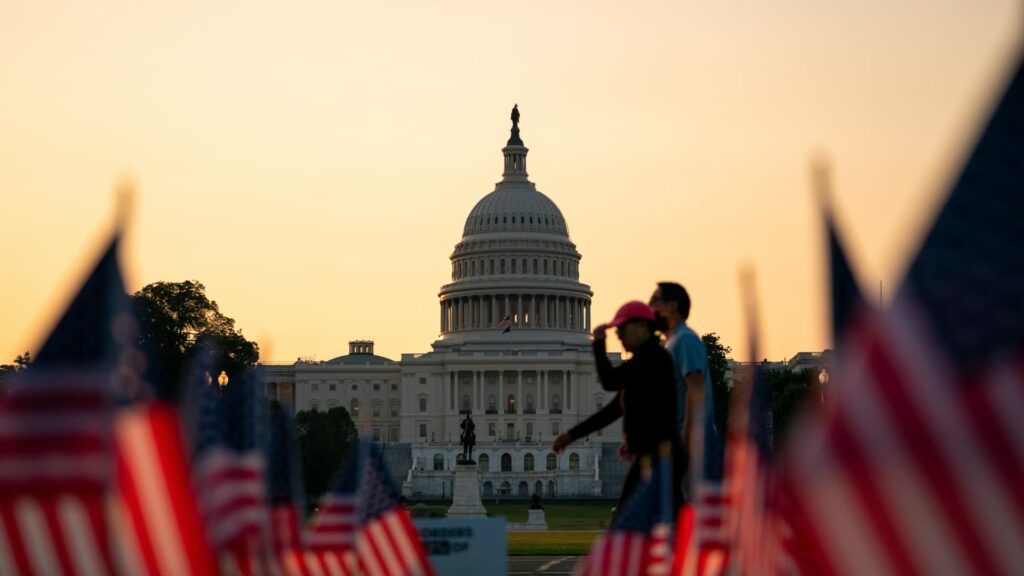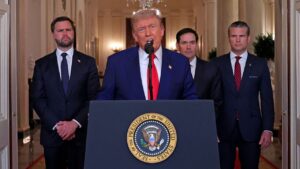
The One Big Beautiful Bill Act (OBBBA), a contentious legislative proposal championed by U.S. President Donald Trump, has garnered support from several major banks, who argue it could invigorate the U.S. economy. The bill advanced through the Senate with a narrow 51-49 vote late Saturday, bringing it closer to becoming law. Despite concerns about its potential to increase the federal deficit, the bill’s proponents believe its sweeping tax reforms and targeted incentives could provide the economic stimulus needed.
The American Bankers Association expressed its endorsement in a letter published Sunday, highlighting the “much needed tax relief” within the bill. David Seif, Nomura’s chief economist for developed markets, stated, “I think the OBBB would almost unquestionably be good for the US economy over the next couple of years compared to passing nothing,” referencing the impending expiration of many provisions from Trump’s 2017 Tax Cuts and Jobs Act.
Economic Implications of the OBBBA
The 2017 Tax Cuts and Jobs Act introduced lower income tax rates, increased child tax credits, and generous business deductions. Without intervention, many of these provisions are set to expire by the end of 2025, potentially curtailing household consumption and corporate investment. The OBBBA aims to renew these expiring provisions, thereby averting a sharp fiscal contraction in 2026.
Seif emphasized the bill’s role in preventing a sudden fiscal downturn, stating, “The most important thing OBBB does for the next few years is renew most of those expiring tax provisions, preventing a major and sudden fiscal contraction from occurring.” He also noted that provisions allowing faster business expensing of capital investments might boost short-term investment, albeit possibly at the expense of future investments.
Support from Financial Institutions
Citi strategists echoed similar sentiments in a note published last Wednesday, suggesting that the bill’s passage would act as an economic tailwind. They wrote, “In the near term, trade deals (UK, China, eventually Japan, India, Europe, etc) and the passing of the (net stimulatory) Big Beautiful Bill in July should improve growth sentiment.”
Citi also anticipates that the Federal Reserve will adopt a looser monetary policy, further enhancing growth sentiment. The strategists added, “We do not see a bond vigilante moment during 2025/2026 as the BBB delta is largely funded by tariff revenues.”
Concerns and Criticisms
Despite the optimistic outlook from banking institutions, the OBBBA has not been without its critics. Credit agencies have issued warnings about the potential increase in the federal deficit, raising concerns about long-term fiscal sustainability. Critics argue that while the bill may provide short-term economic relief, it could exacerbate fiscal challenges in the future.
Furthermore, the bill’s reliance on tariff revenues to offset its costs has drawn skepticism. Some economists caution that such measures could lead to trade tensions and economic volatility, potentially undermining the very growth the bill seeks to promote.
Looking Ahead
The advancement of the OBBBA marks a significant legislative milestone, yet its journey is far from over. As the bill moves closer to the President’s desk, it faces scrutiny from both lawmakers and the public. The debate surrounding its potential impact on the U.S. economy continues to unfold, with stakeholders weighing the benefits of immediate tax relief against the risks of increased deficit spending.
As the nation awaits further developments, the OBBBA remains a focal point of economic discourse, highlighting the ongoing challenges of balancing fiscal policy with economic growth objectives.






